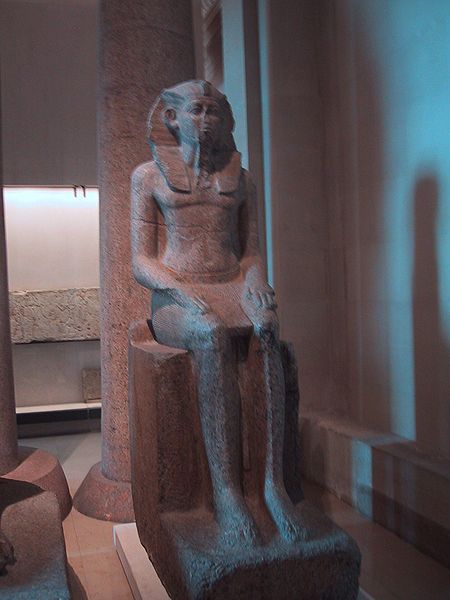8 Mar. Moses and Aaron address the king of Egypt
“After Moses and Aaron talked to the people, they went to the king of Egypt and said, ‘This is what the LORD, the God of Israel, says, “Let my people go so that they may hold a feast for me in the desert."’”
“But the king of Egypt said, ‘Who is the LORD? Why should I obey him and let Israel go? I do not know the LORD, and I will not let Israel go.’”
“Then Aaron and Moses said, ‘The God of the Hebrews has met with us. Now let us travel three days into the desert to offer sacrifices to the LORD our God. If we don’t do this, he may kill us with a disease or in war.’”
“But the king said to them, ‘Moses and Aaron, why are you taking the people away from their work? Go back to your work! There are very many Hebrews, and now you want them to stop working!’”
That same day the king gave a command to the slave masters and foremen. He said, ‘Don’t give the people straw to make bricks as you used to do. Let them gather their own straw. But they must still make the same number of bricks as they did before. Do not accept fewer. They have become lazy, and that is why they are asking me, “Let us go to offer sacrifices to our God.” Make these people work harder and keep them busy; then they will not have time to listen to the lies of Moses...’”
“Then the Israelite foremen went to the king and complained, ‘Why are you treating us, your servants, this way?’... The Israelite foremen knew they were in trouble, because the king had told them, ‘You must make just as many bricks each day as you did before.’”
“As they were leaving the meeting with the king, they met Moses and Aaron, who were waiting for them. So they said to Moses and Aaron, ‘May the LORD punish you. You caused the king and his officers to hate us. You have given them an excuse to kill us.’”
(Exodus 5:1-21)

The Pharaoh who had brought Moses up in his royal household (probably Pharaoh Khaneferre Sobekhotep IV) had died not long after Moses’ flight from Egypt. So Moses and Aaron approached the more recently crowned pharaoh - probably Djedneferre Dudimose (c.1450-1446BC).
They made a modest request – to allow the Israelites a three-day religious holiday to offer sacrifices to their God in the desert area to the east of the Nile Delta. But the king declared that he had no knowledge of the ‘foreign’ god of the Hebrews, and refused to let the Israelites leave Avaris in Goshen to worship God in the desert.
In his fury, the pharaoh made the Israelites’ working conditions even harder by refusing to give them straw for making bricks, but insisted they produce the same number of bricks as before.
Once the slave drivers had delivered the king’s instructions to the Israelites, the Hebrew foremen went to the king to complain about these new, more rigorous working conditions. But the king would have none of it: “You are lazy. You don’t want to work! That is why you ask to leave here and make sacrifices to the LORD.” (Exodus 5:17)
Faced with this impasse, the Hebrew foremen blamed Moses and Aaron for the king’s actions: “You caused the king and his officers to hate us. You have given them an excuse to kill us.” (Exodus 5:21).
Moses quickly discovered that it’s not always easy to follow God’s instructions and to do his will – especially when those you are intending to help turn against you, and blame you for the problems they face!
The photo shows a statue of Pharaoh Sobekhotep IV (in the Louvre Museum, Paris), who was probably the Egyptian king who brought Moses up in his royal household.
You can read more about Moses’ confrontation with the Egyptian pharaoh @ https://www.thebiblejourney.org/biblejourney2/25-the-israelites-journey-from-egypt-to-mt-sinai/moses-is-called-by-god-at-mt-sinai
